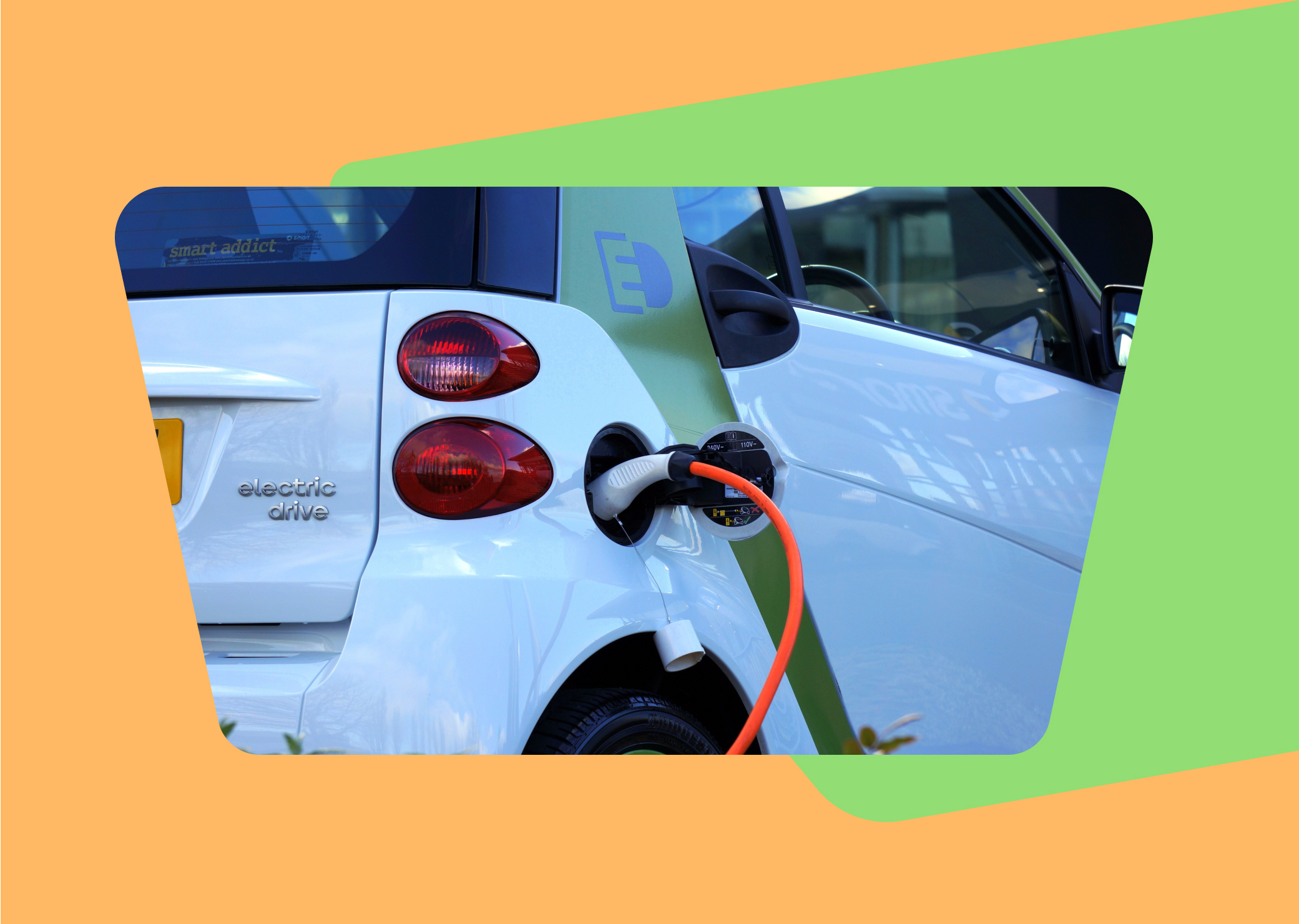- Carmoola
- Blog
- Tips and Advice
- Driving Electric Cars in Winter
- 🗞 Tips and Advice
- Last updated: Mar 18, 2023
- 5 Min Read
Driving Electric Cars in Winter
Written by

Verified by


See how much you can borrow in 60 seconds
| Representative Example | |
|---|---|
| Loan amount | £10,000 |
| Interest rate | 13.9% APR |
| 54 payments of | £246 |
| Total cost of credit | £3,284 |
| Option to purchase fee | £1 |
| Total payable | £13,285 |
Wondering how the cold weather affects electric cars? It is widely reported that electric vehicles don’t perform as well in the winter months. However, is this different to petrol and diesel models, and is it anything to be worried about? 🤔
As the temperature drops, many drivers ask, "Are electric cars good in snow?" and "How does electric car range in winter differ from summer?"
In this blog post, we will answer these questions and more, focusing on the impact of chilly temperatures on battery performance, EV charging in cold weather, and driving safety.
From ensuring optimal battery health to providing tips for improving the range and charging efficiency, we've got you covered. So, buckle up and join us as we explore how to make your driving experience as smooth and enjoyable as possible, even when the mercury dips below freezing.
Don’t forget you can learn about tips and advice with all things EV in our blog.
How does cold weather impact the battery of electric cars?
Like batteries in your smartphone or laptop, electric car batteries rely on controlled chemical reactions to generate electricity. These chemical reactions, like any other, are temperature sensitive. When an EV battery operates outside its ideal temperature range, its efficiency decreases, reducing electricity production. Consequently, the battery's performance is affected by the surrounding temperature conditions.
EV batteries also experience a reduction in range during winter months due to the increased workload in colder conditions. The batteries generate electricity as lithium ions travel from the anode to the cathode within the cells. However, cold temperatures impede this movement, decreasing electricity production and overall battery efficiency. When the temperature drops, we crank up the heat inside the car, further draining the battery.
Car Charging Times in Cold Weather
Cold weather can impact charging times for electric vehicles. Overnight charging may require an additional couple of hours, while rapid charging could take around 45 minutes instead of the usual 30. Low temperatures can also affect charging stations, leading to slower charging speeds. This is primarily due to the slower movement of lithium ions within the battery under cold conditions.
Unfortunately, there isn't much that can be done to mitigate this issue now. To adapt, it's crucial to factor in longer wait times at charging stations and be prepared for potential queues. Ensure you arrive at a charging station with sufficient charge remaining (avoid waiting until the last minute) and consider setting off earlier to accommodate these delays.
Discover more about electric car charging in our blog.
Are electric cars good in snow?
Electric vehicles are designed differently from petrol and diesel models. The heavy battery is usually situated beneath the car, providing a lower centre of gravity. This design aspect often results in better traction for electric vehicles, making them more capable of navigating snowy conditions.
Many electric cars come equipped with stability control and anti-lock braking systems, which enhance handling and traction by regulating speed, minimising wheel spin, and automatically activating brakes when needed. Some electric vehicles even offer a dedicated 'winter' mode to assist in slippery conditions.
Whilst individual cars may vary, electric vehicles could offer a better driving experience in snowy conditions due to their unique design and features.
Consider investing in one of the latest electric vehicles as they include more advanced features. Check out the best new electric cars of 2023 now.
What are some tips for driving electric cars in winter?
To enhance your battery efficiency during winter months and ensure a smooth driving experience with your electric vehicle, consider implementing the following tips and adjustments:
Preheat Your EV When It Is Plugged In
With electric car range in winter being a concern, it's advisable to pre-heat your vehicle's cabin while it's connected to a power source. This approach utilises mains electricity to warm up the car instead of depleting the battery after you begin driving. Additionally, more frequently plugging in your electric vehicle can help alleviate range anxiety during the colder months.
Drive Slower
The quicker you drive, the more your car's efficiency takes a hit. Easing off the pedal from 70mph to a comfy 65mph on the motorway could significantly improve your electric car’s range. Don't forget to drive smoothly and embrace your car's Eco setting for an even better experience.
Plan Your Route in Advance
Most electric vehicles have sat-nav systems that can determine the most efficient route when a destination is entered, potentially conserving valuable range. Additionally, planning your route allows you to consider traffic conditions, helping you select the fastest option.
Turn Up Regenerative Braking
Adjusting the regenerative braking level on your electric car can aid in capturing energy that might be wasted during deceleration or coasting. However, exercise caution, as this system can lead to wheel slippage in heavy snow or icy conditions. It's recommended to turn it off when facing extreme weather situations.
Cover The Car When Not in Use
If you anticipate not using your vehicle for a shorter duration in colder weather, consider covering it with a dedicated car cover. This will provide insulation to prevent the car from freezing during frosty conditions. Moreover, if your vehicle remains idle for an extended period during winter, aim to maintain a battery charge between 20% and 80% while parked. This prolongs the battery’s life and ensures sufficient charge when you resume using the vehicle.
That’s All, Folks!
As you can see, there are some challenges in driving electric cars in winter. EV charging in cold weather may require more frequent charging sessions, and electric car range in winter may be diminished due to factors like using the heater or driving in harsh conditions.
To optimise your electric vehicle's performance during the colder months, it's essential to consider pre-heating the cabin, adjusting your driving habits, using energy-efficient navigation, and managing regenerative braking wisely. Furthermore, protecting your vehicle and maintaining the battery's charge when parked for extended periods is a good idea.
Check out more winter driving tips in our blog to help you prepare for the colder months of the year. ❄️
See how much you can borrow in 60 seconds
| Representative Example | |
|---|---|
| Loan amount | £10,000 |
| Interest rate | 13.9% APR |
| 54 payments of | £246 |
| Total cost of credit | £3,284 |
| Option to purchase fee | £1 |
| Total payable | £13,285 |
Related articles
Can you drive in the UK on a foreign licence?
If you’re new to the UK, you might be keen to get behind the wheel to explore on the open road. You can usually drive in the UK...
What happens if my car is written off and it’s still on finance?
Accidents happen. When split-second decisions and challenging conditions make driving difficult at the best of times, even the...
Which credit reference agencies do lenders use?
When applying for car finance, your credit score can make a significant difference to the APR you’re offered, your repayment...

.webp?width=832&height=592&name=customer-support%20(1).webp)










.webp?width=400&height=285&name=online-shoppers-with-dog%20(1).webp)


.jpg?width=500&height=356&name=Vintage%20car%20going%20to%20an%20old%20town-1%20(1).jpg)





